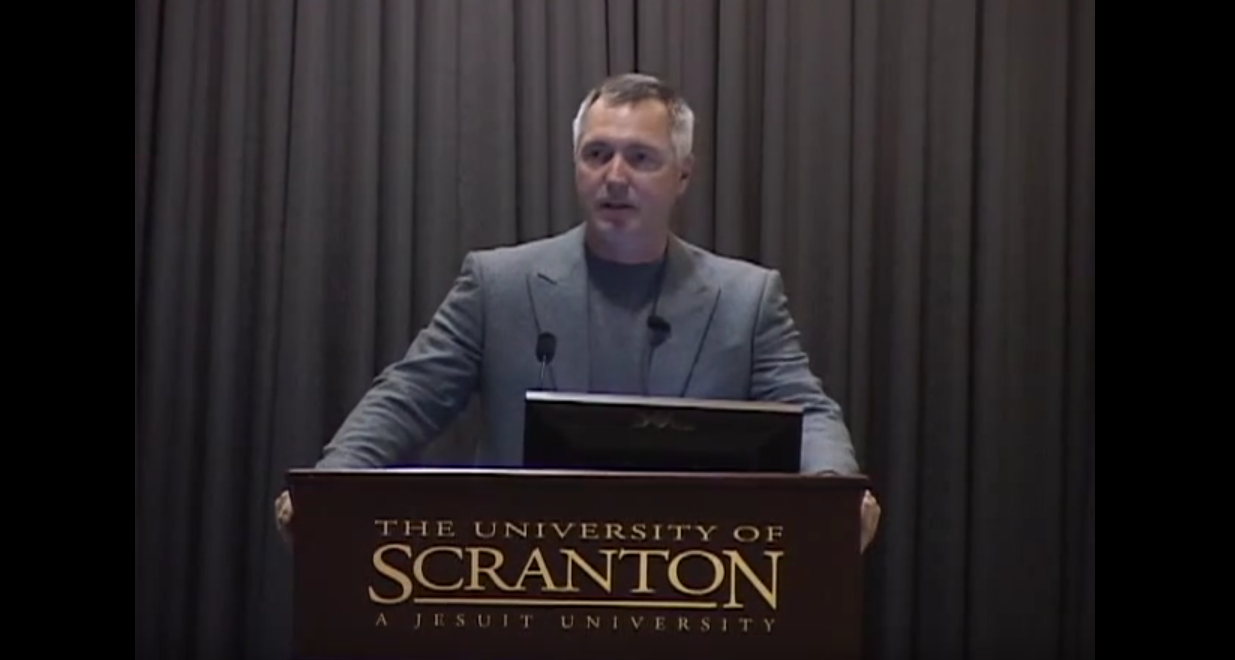Impact of China’s Economic Rise Discussed

“The China Shock: Economic and Political Consequences of China’s Rise for the United States” will be discussed at The University of Scranton’s 32nd Henry George Lecture on Friday, Nov. 17. The lecture, presented by David Autor, Ph.D., Ford Professor of Economics and associate department head of MIT’s Department of Economics, will begin at 7:30 p.m. in the ballroom of the Radisson Lackawanna Station Hotel. The lecture is free of charge and open to the public.
Dr. Autor’s research with David Dorn, Ph.D., University of Zurich, and Gordon Hanson, Ph.D., University of California San Diego, as well as other research partners, focuses on the economic benefits and costs of trade integration. Their studies look at the global economic impact of the rise of China as an economic power, including its impact on U.S. workers, companies and markets. Studies and data on this subject is are presented on their website “The China Trade Shock.” A map on the website illustrates regions of the U.S. most impacted by China’s rise in global markets, including areas of Pennsylvania, which is “partly because those areas had lots of jobs in industries where imports surged the most,” according to their research. Their studies also indicate the demographics of those most affected as being “whiter, less educated, older and poorer than most of the rest of America.”
Studies by Drs. Autor, Dorn and Hanson related to this topic include “The China Shock: Learning from Labor Market Adjustment to Large Changes in Trade,” published in the October 2016 Annual Review of Economics, and “Untangling Trade and Technology: Evidence from Local Labor Markets,” published by The Economic Journal in May 2015.
Dr. Autor’s other areas of expertise include: human capital, skill supply and demand, and earnings inequality; and disability insurance and labor force participation. He serves as co-director of the National Bureau of Economic Research (NBER) Labor Studies Program and as director of the NBER Disability Research Center. He is an elected member of the American Economic Association Executive Committee and the Society of Labor Economists Executive Committee.
Dr. Autor has received numerous awards for teaching and research, including the 2014 Faculty Appreciation Award from the MIT Technology and Public Policy Student Society, the 2013 James A. and Ruth Levitan Award for Excellence in Teaching from the MIT School of Humanities, Arts, and Social Sciences, the 2008 Sherwin Rosen Prize for Outstanding Contributions in the Field of Labor Economics from the Society of Labor Economists and the 2006 John T. Dunlop Outstanding Scholar Award from the Labor and Employment Relations Association, to name a few.
Dr. Autor earned his bachelor’s degree from Tufts University and his master’s and Ph.D. from Harvard University.
Considered the preeminent public lecture series on economics in Northeastern Pennsylvania, the Henry George Lecture Series is presented by the University’s Economics and Finance Department and the campus chapter of Omicron Delta Epsilon, an international honor society for economics. Among the distinguished list of speakers who have spoken at previous lectures are nine winners of the Nobel Prize in Economics: Robert Shiller (2013), Tom Sargent (2011), Peter Diamond (2010), Paul Krugman (2008), Joseph Stiglitz (2001), George Akerlof (2001), Amartya Sen (1998), Robert Lucas (1995) and Robert Solow (1987). The lecture series is named in honor of the 19th century American economist and social reformer and is supported financially by a grant from the Robert Schalkenbach Foundation.
For more information about the Henry George Lecture, call 570-941-4048 or email janice.mecadon@scranton.edu.
John List, Ph.D., Kenneth C. Griffin Distinguished Service Professor of Economics at the University of Chicago, discusses "Life as a Laboratory: Using Field Experiments in Economics" at The University of Scranton's Henry George Lecture in 2013. Nine winners of the Nobel Prize in Economics have spoken at the Henry George Lecture Series at Scranton, which is considered the preeminent public lecture series on economics in Northeastern Pennsylvania. The lecture series is presented by the University’s Economics and Finance Department and the campus chapter of Omicron Delta Epsilon, an international honor society for economics, and is supported financially by a grant from the Robert Schalkenbach Foundation.







